Ayize Jama-Everett was born in 1974 and raised in Harlem, N.Y. He holds master's degrees in clinical psychology and divinity and teaches religion and psychology at Starr King School for the Ministry when he's not working as a school therapist at the College Preparatory School in Oakland, Calif. Small Beer Press is publishing his debut novel, the science fiction thriller The Liminal People, on January 10, 2012.
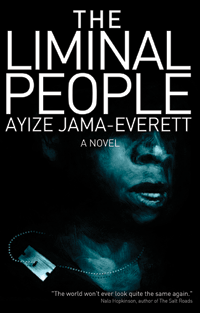 On your nightstand now:
On your nightstand now:
What the hell is a nightstand? I've got a mattress lying on a flat of books. The ones in reaching distance: The Life and Death of Yukio Mishima by Henry Scott Stokes, Kingsley Amis's New Maps of Hell (a very interesting critique/history of science fiction as a genre from a British 1960s perspective), Rosemary Jackson's Fantasy: The Literature of Subversion, Brian Wood's graphic novel Local and Walter Benjamin's On Hashish.
Favorite book when you were a child:
Chris Claremont's God Loves, Man Kills. The first X-Men graphic novel I ever read. It drew a direct correlation between race relations and mutant powers. It also introduced me to the concept of the villain as the sole character with proper insight but improper action.
Your top five authors:
I can tell you whose books I run to the store for on new book Tuesday and don't stop reading. Are they my top five? I'm just loyal.
Andrew Vachss. The Wire and Homicide live on the sunny side of the towns Mr. Vachss gives the reader access to. I've been reading him since I was a humble book jockey at Half Price Books. When a dog dies in one of his novels, I cried and held my dog tight. When my dog died, once I got through my tears, all I could think was "Vachss got it right." When the Burke series ended, I thought, that's it. Then Haiku came out, and I breathed a sigh of relief.
Nalo Hopkinson. I love accents. Not just the verbal kind. She works the literary accent of making you read every word by varying sentence structure, length and meter to such a degree that assumptions are made, redacted, then reassumed. Plus half of her stuff is just so damn sexy. Or maybe it's just her voice I'm hearing whenever I read her. My aunt's book club read New Moon's Arms and were pleasantly scandalized.
Garth Ennis. He's mad at the world. Or maybe he's just mocking it with such vitriol it seems like hate. In any case, there are few writers I want to smoke, drink and then fight with. He's tops on that list. His run on Hellblazer showed me what comics could do if they stopped being so scared of their own shadow sides. His run on Preacher not only proselytized a new theology of naked confrontationalism for a generation of disaffected literate males, but it also introduced many of us to the comic genius that is Bill Hicks. For that alone, I'm buying the man a beer when next we meet. He was also kind enough to send me a Ren & Stimpy postcard telling me to keep at it when I sent him a comic book script I was working in college.
China Miéville. I mean come on! Politics, drugs, sex, violence, magic, myth, reconstitutions of pathos and mythos holding hands while skipping down the rust-bricked road of 21st-century London... what is not to love? I see Kraken as a love letter to two generations of magic written for London. Embassytown reads like the Twilight Zone/Star Trek crossover that should have happened when Rod Serling and Gene Rodenberry got high together that one time, you know? He assumes his audience has a brain and knows they engage in the broader world on multiple levels. Can't wait to see what he does next.
Oliver Sacks. I don't think he's a great writer, but he's an amazing storyteller. In part because his material is just so damn giving. Of course every time I read him I can't help but think everyone around me is either having a mini stroke, is autistic or has a granular-sized tumor somewhere in their brain. Not the healthiest thing I realize, but what an insight into what it means to be human.
Book you've faked reading:
A Thousand Plateaus by Deleuze and Guttari. I am proud to say that I finished it about five months after I lied.
Book you're an evangelist for:
The Mount by Carol Emshwiller. Holy Fraggin Schmidt! What the hell is that book about? Slavery? Internalized oppression? The lament of the big-eared individual? I can't... it's just....
Book you've bought for the cover:
Sodomy and the Pirate Tradition, but it was more for the title.
Book that changed your life:
The Wretched of the Earth by Frantz Fanon. I read it every year for a decade.
Favorite line from a book:
"The black man has no ontological resistance in the eyes of the white man." --Frantz Fanon, Black Skins, White Masks.
Book you most want to read again for the first time:
More Brilliant Than the Sun: Adventures in Sonic Fiction by Kodwo Eshun--a poetic epic on the entangled fate of sonic imaginations across the Black Atlantic. I picked up that book by accident. When I put it down I was a changed person.
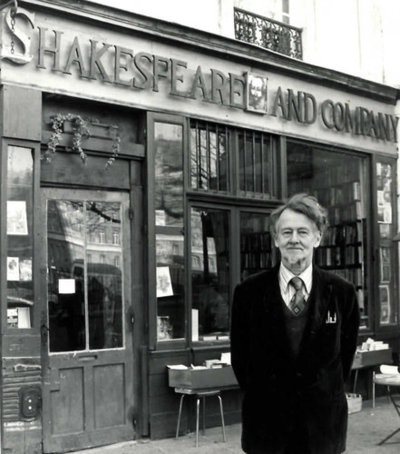 "I found a second home at Shakespeare and Company. George always gave special privileges to writers--he lent me his dog to keep me company. He was an affront to modern capitalism, because he ran a successful business that put people, culture and books before money. He made his own world, and that is the best that anyone can do."
"I found a second home at Shakespeare and Company. George always gave special privileges to writers--he lent me his dog to keep me company. He was an affront to modern capitalism, because he ran a successful business that put people, culture and books before money. He made his own world, and that is the best that anyone can do."







 Farhad Manjoo's "Don't Support Your Local Bookseller" call to arms in Slate earlier this week (
Farhad Manjoo's "Don't Support Your Local Bookseller" call to arms in Slate earlier this week ( One of Manjoo's targets,
One of Manjoo's targets,  On her Bookavore blog,
On her Bookavore blog, 
 Amazon's announcement yesterday about Kindle sales
Amazon's announcement yesterday about Kindle sales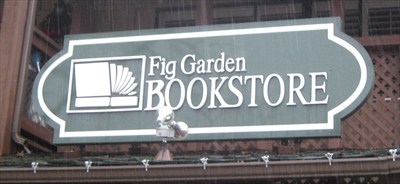 The
The  Among the most popular business models that booksellers have considered and implemented in recent years is the bookstore with many gift items and a café. For many stores the process has been one that involves grafting sidelines and a café onto a basic bookstore, a sometimes awkward maneuver. In the case of
Among the most popular business models that booksellers have considered and implemented in recent years is the bookstore with many gift items and a café. For many stores the process has been one that involves grafting sidelines and a café onto a basic bookstore, a sometimes awkward maneuver. In the case of 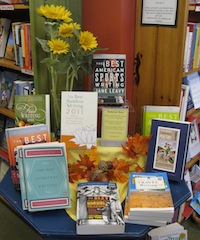 The change began when the wholesaling business started carrying wine-making and beekeeping books. (Co-owner Nancy Crosby, who started the supply business in Westport, Conn., before making a somewhat confusing move to Westport, Mass., had worked at the Remarkable Book Shop in Westport, Conn., and was partial to bookselling.)
The change began when the wholesaling business started carrying wine-making and beekeeping books. (Co-owner Nancy Crosby, who started the supply business in Westport, Conn., before making a somewhat confusing move to Westport, Mass., had worked at the Remarkable Book Shop in Westport, Conn., and was partial to bookselling.)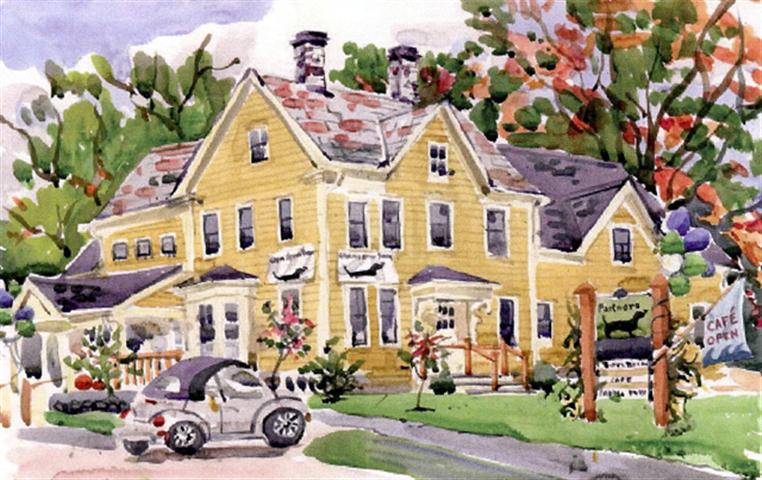 The result is impressive. Since 2007, Partners Village Store & Kitchen has been located in a renovated house with 4,000 square feet of retail space on its first floor that comprises a bookstore, gift area and a café. The bookstore takes up about a third of the space, which is among Hall's responsibilities. (She does book and toy buying.) Partners has about 15 employees and runs the café itself. The café serves a range of delicious food, including sandwiches, salads, soups and desserts.
The result is impressive. Since 2007, Partners Village Store & Kitchen has been located in a renovated house with 4,000 square feet of retail space on its first floor that comprises a bookstore, gift area and a café. The bookstore takes up about a third of the space, which is among Hall's responsibilities. (She does book and toy buying.) Partners has about 15 employees and runs the café itself. The café serves a range of delicious food, including sandwiches, salads, soups and desserts. The store has a light, airy, homey feeling and is well decorated. There are displays in every nook and cranny that are both clever and tasteful. For example, little shelves fill up a space too small for a bookcase (see photo, right).
The store has a light, airy, homey feeling and is well decorated. There are displays in every nook and cranny that are both clever and tasteful. For example, little shelves fill up a space too small for a bookcase (see photo, right).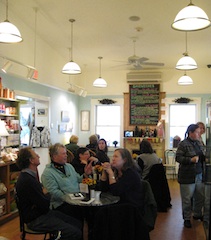 Hall called the mix of books, gifts and the café "a good combination that has worked well. Gifts have a great price point and carry bookstore, and the café is great." The only significant problem is that "people think we're a gift store with gift books," she said.
Hall called the mix of books, gifts and the café "a good combination that has worked well. Gifts have a great price point and carry bookstore, and the café is great." The only significant problem is that "people think we're a gift store with gift books," she said.
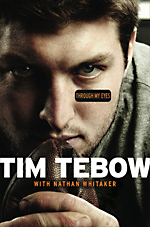 Denver Broncos quarterback Tim Tebow has become the stuff of legend this season for leading his team to come-from-behind victories, and apparently this momentum has carried over to the publishing world. USA Today reported that
Denver Broncos quarterback Tim Tebow has become the stuff of legend this season for leading his team to come-from-behind victories, and apparently this momentum has carried over to the publishing world. USA Today reported that  On your nightstand now:
On your nightstand now: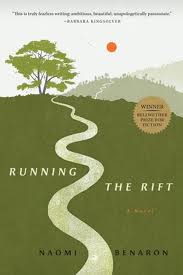 Naomi Benaron's debut novel won the
Naomi Benaron's debut novel won the 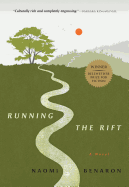
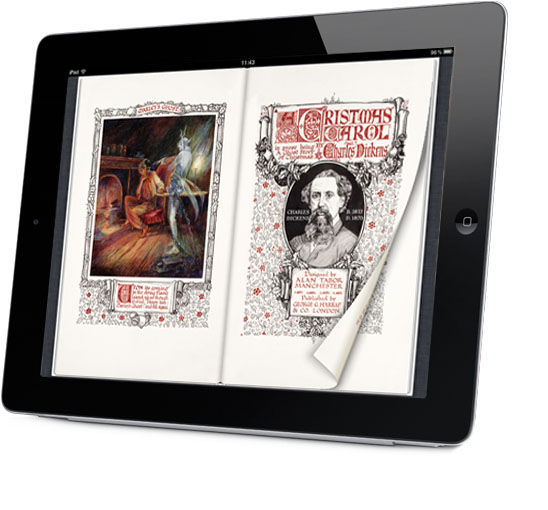 On the third night, as Scrooge lay in bed, double-checking accounts on his iPad, once again the Phantom slowly, gravely, silently approached from deep within the dimly backlit touch screen. When it came, Scrooge tapped furiously, hoping to delete the specter, but to no avail, for in the very pixels through which this Spirit moved it seemed to scatter gloom and mystery.
On the third night, as Scrooge lay in bed, double-checking accounts on his iPad, once again the Phantom slowly, gravely, silently approached from deep within the dimly backlit touch screen. When it came, Scrooge tapped furiously, hoping to delete the specter, but to no avail, for in the very pixels through which this Spirit moved it seemed to scatter gloom and mystery.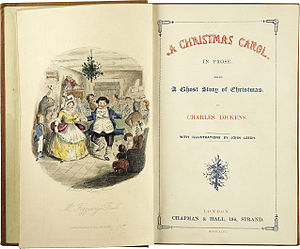 Then Scrooge went to his shelves and found his own leather-bound volume of Mr. Dickens's fine story, which had been too long neglected after the introduction of an enhanced digital edition.
Then Scrooge went to his shelves and found his own leather-bound volume of Mr. Dickens's fine story, which had been too long neglected after the introduction of an enhanced digital edition.